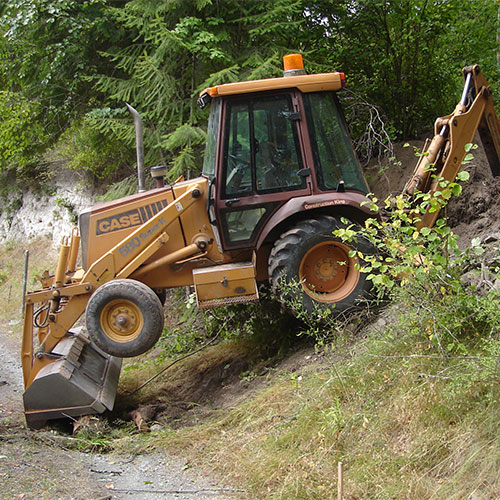Septic Ohio - Comprehensive Septic System Services in Ohio
Septic Ohio - Comprehensive Septic System Services in Ohio
Blog Article
Comprehensive Excavation Approaches: Mastering the Fundamentals for Success
The cautious planning, specific implementation, and precise interest to detail called for in excavation jobs demand a detailed technique that includes various fundamental facets. The real mastery lies not just in recognizing these basics but in seamlessly incorporating them to navigate the intricacies of excavation tasks with finesse.
Comprehending Excavation Project Planning

The preliminary phase of any excavation job is the preparation phase, where critical decisions are made that can substantially influence the outcome of the project. Comprehending the job spending plan, timeline, and extent restraints is vital for creating a comprehensive excavation plan that ensures the project's success.
One secret facet of excavation job preparation is the development of a comprehensive timeline that describes the sequence of turning points, target dates, and tasks. By carefully taking into consideration all these elements throughout the planning stage, excavation jobs can be executed effectively and successfully, leading to effective end results - lancaster excavation.
Dirt Evaluation and Site Evaluation
Carrying out thorough soil evaluation and website assessment is an important action in the prep work phase of any kind of excavation project. Soil evaluation includes establishing the composition, structure, and properties of the soil at the excavation website. This information is vital for recognizing the soil's bearing ability, wetness web content, and possibility for disintegration, which are crucial factors in figuring out the excavation approaches and equipment required for the project.
Site examination surpasses soil evaluation and incorporates a broader evaluation of the total website problems. This evaluation consists of recognizing any potential risks, such as underground utilities, environmental issues, or unstable terrain, that could influence the excavation process. By completely evaluating the site, task supervisors can create effective excavation techniques that prioritize security, performance, and environmental management.
Using innovative modern technologies like ground-penetrating radar, soil sampling, and drone studies can enhance the precision and effectiveness of soil evaluation and website evaluation. Spending time and resources in these initial actions can eventually conserve time and protect against pricey hold-ups or complications during the excavation process.
Tools Selection and Utilization
Effective excavation tasks depend heavily on critical equipment choice and use to guarantee optimum performance and performance. Selecting the ideal tools for the task is essential in optimizing performance and reducing downtime. Variables such as the kind of dirt, deepness of excavation, and job scope play a substantial role in determining the most appropriate equipment for the task handy.

In enhancement to picking the appropriate equipment, correct usage is crucial to job success. Operators needs to be educated to manage the tools securely and efficiently - lancaster trenching. Regular maintenance checks and prompt fixings aid stop breakdowns and make certain regular performance throughout the project
Safety Measures and Laws Compliance
In the realm of excavation tasks, focusing on precaution and compliance with guidelines is paramount to ensuring a safe and legitimately audio functional atmosphere. Precaution incorporate a variety of practices, including carrying out complete site analyses, applying correct signs and obstacles, and giving appropriate security training for all workers included in the excavation process. Adherence to policies, such as OSHA needs in the United States, ensures that the pop over to this web-site excavation task meets the essential requirements to protect workers, spectators, and the surrounding setting.

Surveillance Development and Adjusting Strategies
Just how can forecast supervisors efficiently track the development of excavation projects and adapt their strategies accordingly to enhance outcomes? Tracking progress is necessary for making sure that excavation projects stay on track and fulfill deadlines.

Conclusion
Finally, understanding the basics of detailed excavation strategies is important for the success of any kind of job. By understanding job planning, assessing Visit Your URL dirt and website problems, selecting appropriate devices, abiding with safety and security regulations, and checking progression, job supervisors can ensure a smooth and effective excavation process. Carrying out these methods will bring about effective end results and minimize prospective dangers or troubles throughout the excavation task.
The first stage of any kind of excavation project is the preparation stage, where crucial choices are made that can significantly affect the end result of the project. Recognizing the job scope, timeline, and budget plan constraints is crucial for producing an extensive excavation strategy that ensures the task's success.
How can predict supervisors properly track the advancement of excavation projects and adapt their techniques accordingly to enhance end results? By very closely keeping an eye on development and being ready to adjust strategies, job supervisors can boost this post the general success of excavation projects.
By understanding project preparation, examining dirt and website conditions, selecting appropriate devices, abiding with safety regulations, and checking development, task supervisors can ensure a smooth and efficient excavation procedure.
Report this page